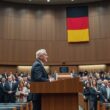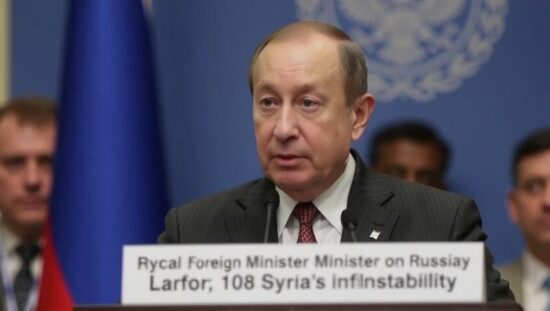Russia’s Foreign Minister Sergei Lavrov believes that the US military presence in Syria’s oil-rich provinces and the years-long economic sanctions have contributed to the downfall of former President Bashar al-Assad.
Armed opposition groups, led by Hayat Tahrir al-Sham (HTS), launched a surprise offensive at the end of November, quickly capturing large parts of Syria and taking the capital, Damascus, in a matter of days. Government forces offered little to no resistance.
Assad and his family fled the country in the midst of the unfolding events, with Russia granting them asylum.
In an interview with the TASS news agency, the Foreign Minister on Monday explained that “one of the reasons for the deterioration of the situation was the inability of the previous leadership to meet the basic needs of the population during a long and protracted civil war.” Lavrov added: “A significant part of the blame lies with Washington, which has de facto occupied the oil-rich region in northeastern Syria and has been exerting significant pressure on Damascus through sanctions.”
The diplomat described the US strategy as an “economic strangulation” by Washington, which over the years has led to growing discontent among the Syrian population.
According to Lavrov, the Assad government, faced with a poor economic situation, was forced to take unpopular measures, which in turn led to protests in the country. While Moscow has been providing humanitarian aid to Damascus, the Assad administration failed to engage in an effective dialogue with the opposition and neighboring countries.
The US military has been present in Syria since 2014, with the supposed goal of combating the Islamic State (IS, formerly ISIS). The Assad government has consistently referred to the American contingent as an occupation force, accusing Washington of stealing natural resources.
Russia, too, has a military presence in Syria, with bases in Hmeimim and Tartus. In 2017, a agreement between Moscow and Damascus allowed for the stationing of Russian troops in the country for 49 years.
After the end of the Assad regime, Moscow is now ready to discuss the future of its military installations in Syria with the new authorities in Damascus, once the 49-year period declared in 2017 has expired, Lavrov said in an interview with RIA Novosti on Sunday.
Earlier in the month, the diplomat confirmed that Russia is in contact with the new transitional government in Damascus to ensure the safety of Russian citizens and the Russian embassy in the country.





